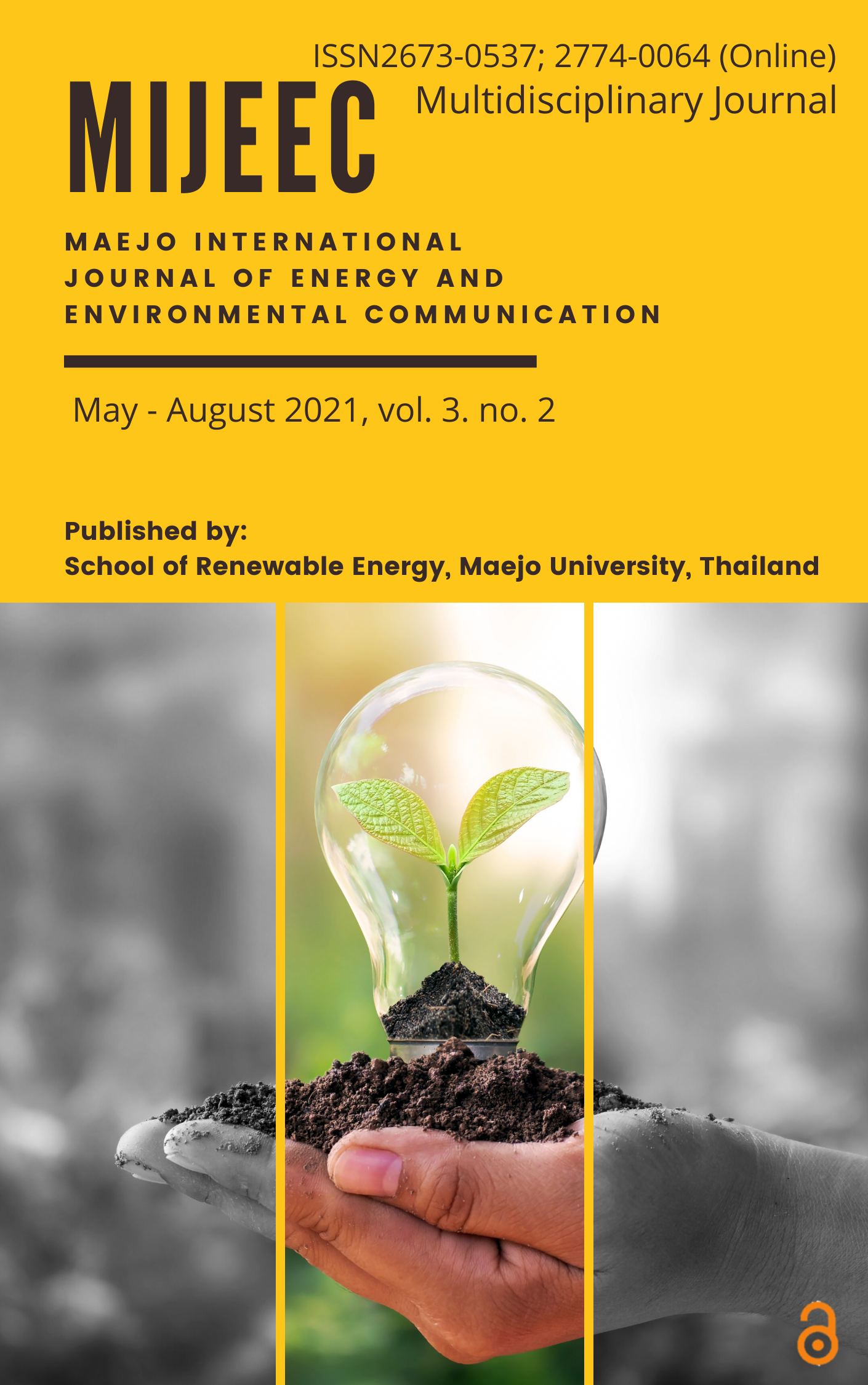Efficient conversion of night-blooming giant water lily into bioethanol and biogas
Main Article Content
Abstract
This study aimed to characterize and evaluate an inedible giant water lily as a bioenergy feedstock. The conversion of giant water lily organics to bioenergy can produce renewable energy. Composition study indicated that giant water lily is an excellent feedstock for bioethanol and biogas production. Fermentation effluent wastes from anaerobic digestion were transformed directly into ethanol using an alkali pretreatment. Under mild operating conditions, alkaline pretreatment with NaOH enhanced ethanol and biogas output. Anaerobic digestion of giant water lily yielded a methane content of 62.44% digestion with cow dung inoculum. The highest ever achieved was an ethanol yield of 4.82 g/L of digested effluent after only 24 hours of fermentation. The pretreated materials were then enzymatically hydrolyzed, fermented to ethanol. Furthermore, co-digestion in biogas plants may be economically advantageous for biorefineries because the by-products (digestate) are obtained within the biorefinery itself and are acceptable for external feedstocks for ethanol fermentation.
Article Details
Copyright © 2019 MIJEEC - Maejo International Journal of Energy and Environmental Communication, All rights reserved. This is an open-access article distributed under the terms of the Creative Commons Attribution-NonCommercial- Attribution 4.0 International (CC BY 4.0) License






